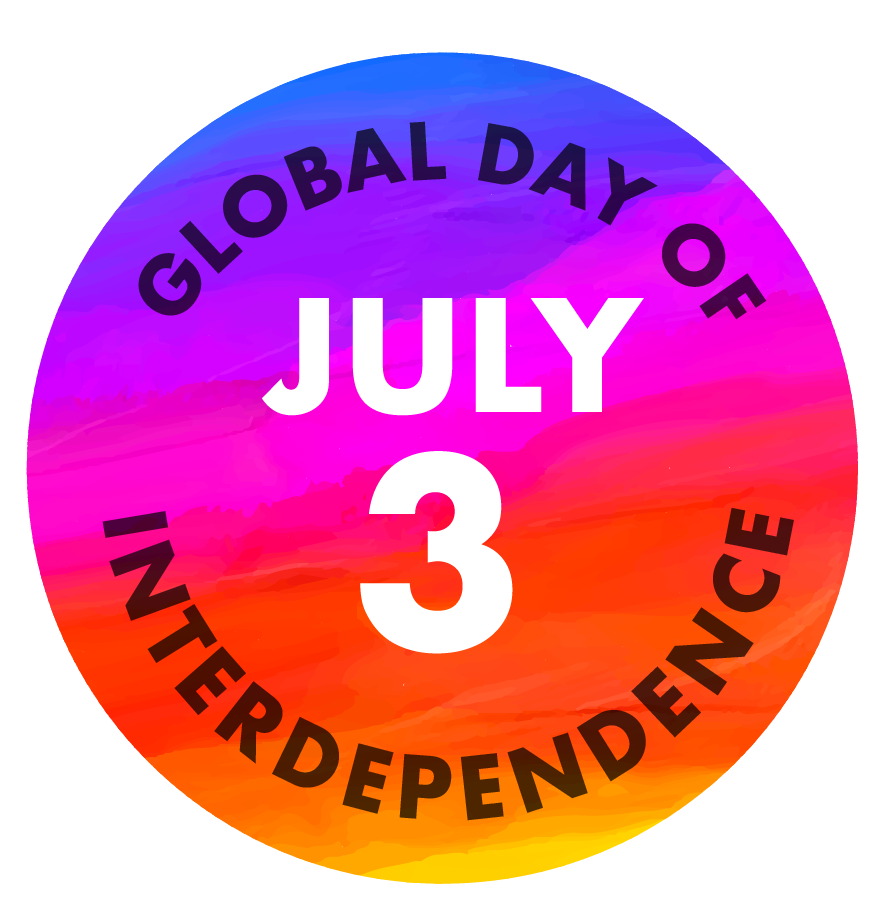Take Action July 3rd!
Use the caption below + share on social!
#WeAreConnected
I’m celebrating #GlobalInterdependenceDay
I recognize and celebrate that #WeAreConnected as one family. Will you join me in celebrating our togetherness?
Thanks @account for nominating me!
I nominate: @account, @account, @account
Celebrating our togetherness is important to me because (include your reasons here).
HOW TO: Take a photo with #WeAreConnected; it can be written on your hard, on a piece of paper, created as artwork, etc. Use this caption. Nominate three new accounts. Tag @globalinterdependenceday as a collaborator.
GlobalInterdependenceDay.org
@globalinterdependenceday
#MakeGoodTogether








































































































































